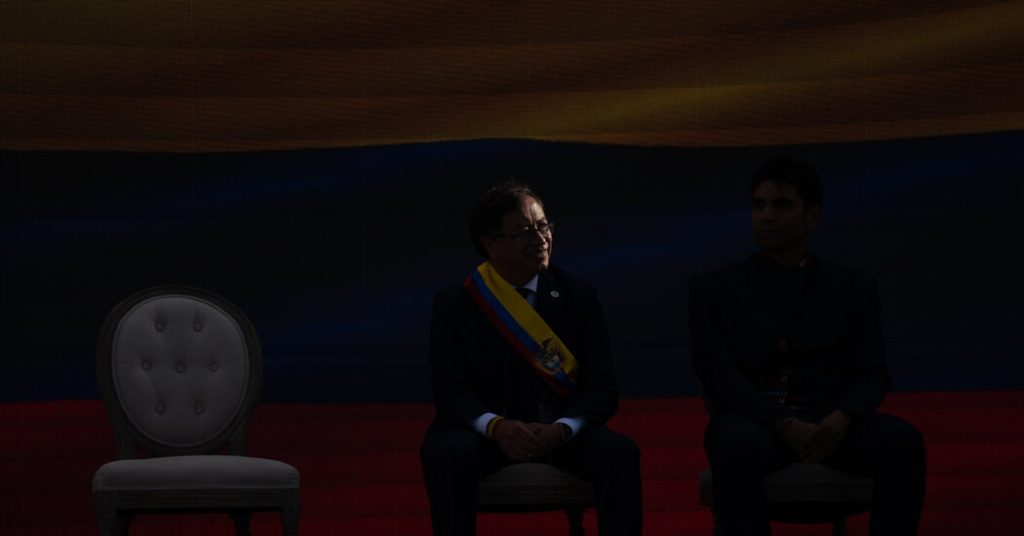The Colombian government, led by President Gustavo Petro, found itself in a heated diplomatic standoff with the Trump administration over the weekend after Mr. Petro refused entry to two US military planes carrying Colombian deportees. The crisis, sparked by Mr. Petro’s concerns over the treatment of migrants on these flights, escalated rapidly with President Trump threatening significant economic sanctions against Colombia, including tariffs and visa suspensions for government officials. The situation prompted frantic diplomatic efforts from both sides, involving Colombian officials, former presidents, and even US senators, to de-escalate the burgeoning conflict and find a mutually agreeable solution.
Mr. Petro’s decision to turn back the planes stemmed from reports of harsh treatment of deportees on a recent flight from the US to Brazil, coupled with his objection to the use of military aircraft for deportations. He publicly criticized the US for treating Colombian migrants “like criminals” and announced the withdrawal of landing authorization for US military planes. The Trump administration swiftly retaliated with threats of economic sanctions, a move that alarmed many in Colombia, given the US’s role as the country’s largest trading partner. The potential economic fallout posed a significant threat to Colombia’s already fragile economy, grappling with internal conflicts and the challenges of a new administration.
The crisis prompted a flurry of behind-the-scenes negotiations. Key figures in the Colombian government, including the foreign minister and other officials, worked tirelessly to communicate with their US counterparts. Former Colombian presidents, notably Álvaro Uribe, a political adversary of Mr. Petro, stepped in to offer assistance, leveraging their contacts in Washington to help bridge the divide. The sense of urgency was palpable, as both sides recognized the potentially devastating consequences of a prolonged conflict. US senators also played a role, urging the Trump administration to exercise restraint and consider the broader implications of its actions.
The intense negotiations ultimately yielded a resolution late Sunday evening, with the Colombian government agreeing to accept deportation flights, including those on military aircraft. The de-escalation followed assurances from the US that deportees would be treated humanely, refraining from the use of handcuffs and ensuring their escort by Department of Homeland Security officials rather than military personnel. While both sides publicly expressed relief at the resolution, the episode underscored the delicate balance between national sovereignty, migrant rights, and the complexities of international relations.
The incident highlighted the growing tensions in Latin America over US immigration policies, particularly the increasing pressure on regional governments to cooperate with deportations. While the US emphasizes the need to control its borders and address illegal immigration, many Latin American countries are grappling with the humanitarian implications and the need to protect the rights of their citizens abroad. Mr. Petro’s initial stance resonated with concerns expressed by other leaders in the region, including those in Brazil, Honduras, and Mexico, who have called for greater respect for migrant rights and humane treatment during deportation processes.
The swift and aggressive response from the Trump administration sent a clear message about its prioritization of immigration enforcement and its willingness to leverage economic pressure to achieve its goals. The incident also revealed the complexities of the US-Colombia relationship, a historically strong alliance strained by differing approaches to migration. While the immediate crisis was averted, the underlying tensions remain, raising questions about the future of US-Latin American relations in the context of ongoing migration challenges. The episode also served as a reminder of China’s growing influence in the region, offering an alternative economic partner for countries seeking to diversify their relationships.


